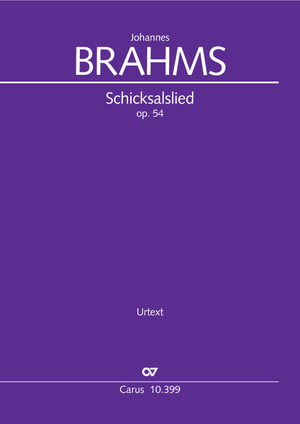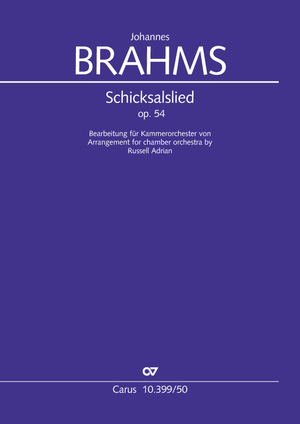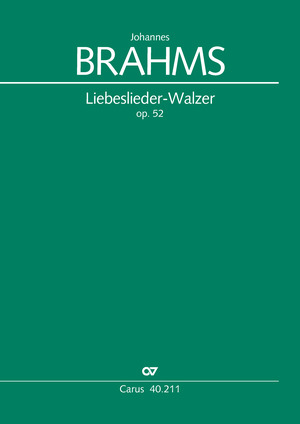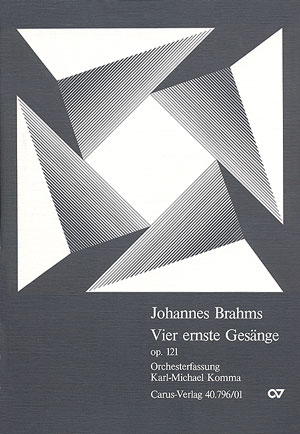
Schicksalslied
op. 54, 1871
With the Schicksalslied, Brahms created a very personal interpretation on the theme of fate in a timeless piece of music that will not fail to impress in concert hall or church. The new edition is a modern Urtext edition of the score based on current editorial principles. It is based not only on the composer’s personal copy of the first edition as the primary source, but also on the engraving manuscript which was long thought to have been lost. Thus the composer’s handwritten corrections made in this manuscript could be incorporated in the new edition, as well as a revision in this bilingual edition of the English translation of Friedrich Hölderlin’s dramatic poem.
Thanks to an arrangement by R. Adrian (Carus 10.399/50), it is possible to perform the work in smaller settings.
-
Composer
Johannes Brahms
| 1833-1897Johannes Brahms' study of musical tradition was of crucial importance to his output: he combined church modes, canonic technique, Baroque style and diction, Bach's counterpoint and Beethoven's thematic-motivic work with the harmonic and expressive achievements of Romanticism to form his own distinctive style. In this respect his choral songs and vocal quartets (e.g. the “Liebeslieder Waltzes” and “New Liebeslieder Waltzes”), often to folk song texts, in which a musical microcosm unfolds, are examplary. His “Deutsches Requiem”, available from Carus in several different versions, constitutes one of the most fascinating confessions of faith in the history of music. Personal details
-
Editor
Rainer Boss
-
Songwriter / Librettist
Friedrich Hölderlin
| 1770-1843
-
Translator
Natalia MacFarren
Reviews
Die Komposition ist ein typischer Brahms, mit einer Aufführungsdauer von etwa 16 Minuten eignet sie sich auch dafür, sein Deutsches Requiem, das nicht ganz abendfüllend ist, zu ergänzen, so dass sich auch dem Requiem wieder neu zuhören ließe.
Rainer Goede, FORUM KIRCHENMUSIK, September/Oktober 2015
Frequent questions about this work
 There are no questions and answers available so far or you were unable to find an answer to your specific question about this work? Then click here and send your specific questions to our Customer Services!
There are no questions and answers available so far or you were unable to find an answer to your specific question about this work? Then click here and send your specific questions to our Customer Services!







